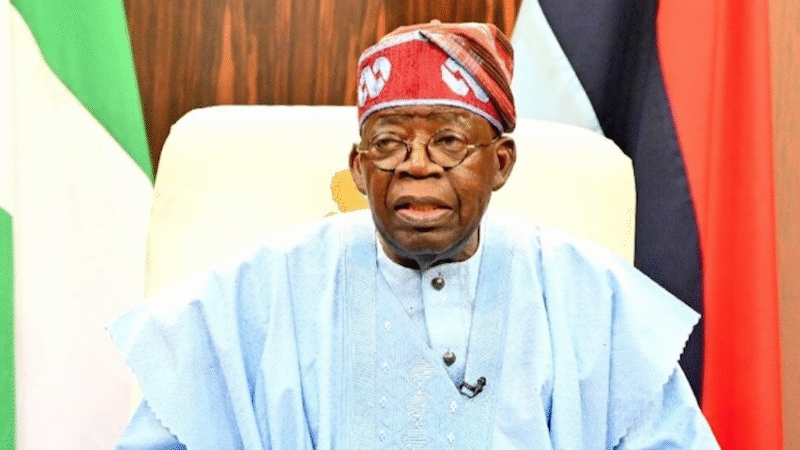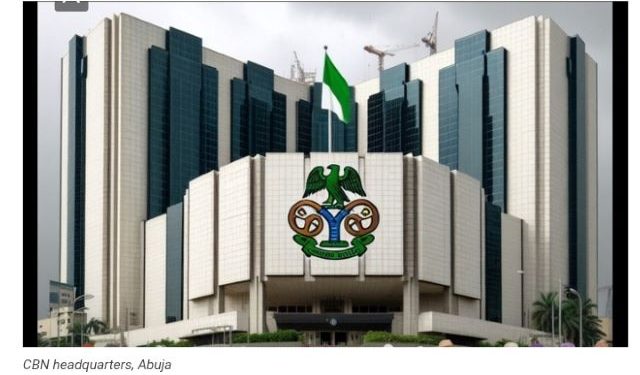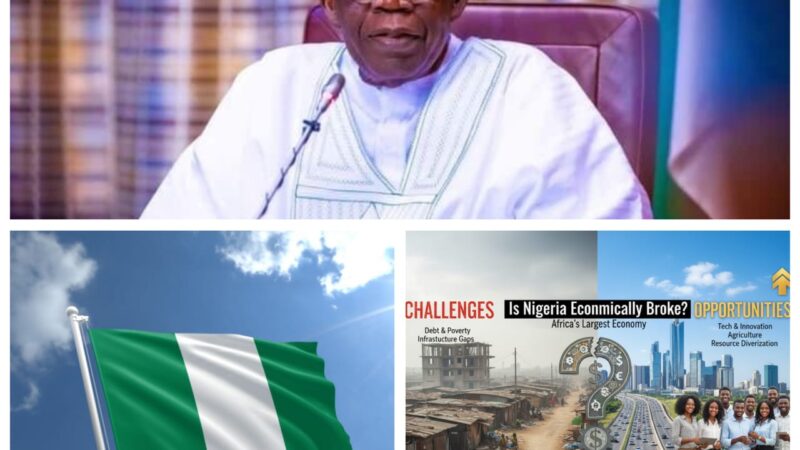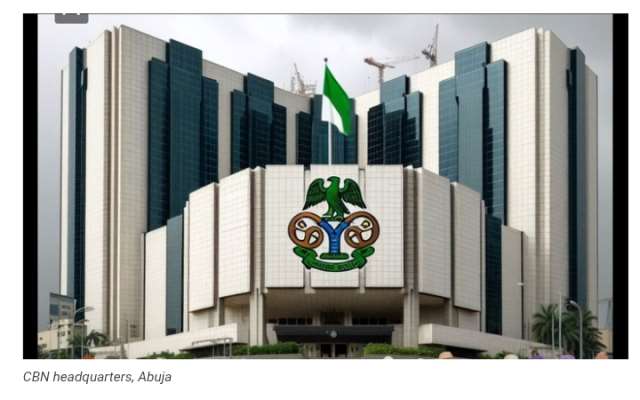Clearing economic hurdles hurting naira, inflation statistics
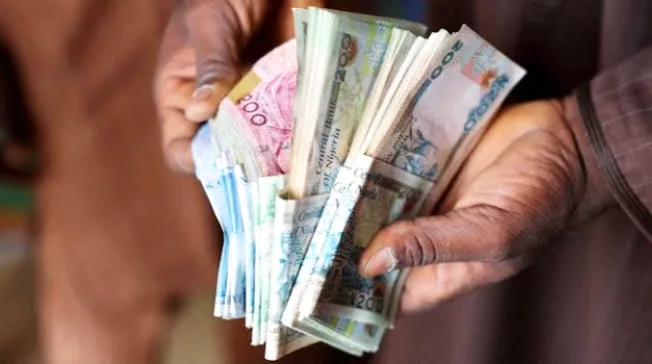
Nigeria has in recent years, faced a myriad of challenges that left a notable mark on the economy. From naira scarcity to massive depreciation of the local currency, spike in inflation figures to reckless printing of nearly N24 trillion through Ways and Means have threatened the macroeconomic condition. In the face of these setbacks were notable bright spots. Domestic oil production rose to 1.41 million barrels daily, according to OPEC survey. The equities markets last year, posted a stellar performance of 45.9 per cent, the highest since 2020. Moody’s upgraded its outlook for Nigeria from stable to positive.
The naira has in recent years come under intense pressure. The naira fell to an all-time low of N1,450/$ at the parallel market. Inflation also rose to 27-year high at 28.92 per cent in December. Unfortunately, these statistics were foretold by people that gauged the state of the economy earlier on.
Few weeks into the life of the present administration, former Central Bank of Nigeria (CBN) Governor, Prof. Charles Soludo gave a prophetic insight into the state of the economy inherited by President Bola Tinubu.
Prof. Soludo, talked about the breach of the Central Bank of Nigeria (CBN) Act 2007, in assessing the Ways and Means. He narrated how the previous CBN leadership freely printed the naira that was not backed up by any productive activities.
At the end, he liked the economy to a “dead horse standing”.
“From the microeconomic point of view, the present government inherited dead economy,” Soludo declared.
Unfortunately, and as predicted, nearly eight months down the line, the Soludo’s “prophesy” has played out in key segments of the economy.
At the Investors and Exporters window- the official market- the local currency traded at N930 to a dollar, creating N420 per dollar premium between the official and parallel markets.
This depreciation marks the lowest the Naira has come to since October 26, 2023, when it reached N1,300 against the dollar on the parallel market.
Aside naira crash, inflation has also continued to rise in recent months.
Consumer inflation rose for the 12th straight month in December to 28.92 per cent year on year from November’s 28.20 per cent, the National Bureau of Statistics (NBS) said.
It was the highest inflation rate in more than 27 years as surging food prices exacerbated a cost-of-living crisis.
Nigeria’s inflation figure has not climbed this high since mid-1996.
The food inflation rate, which accounts for the bulk of the inflation basket, rose to 33.93 per cent in December from 32.84 per cent a month earlier.
The statistics office said prices rose for a broad range of food items including bread and cereals, oil, fish, meat, fruit and eggs.
Analysts say higher fuel prices and a weaker naira have also stoked price pressures.
Managing Director, Financial Derivatives Company Limited, Bismarck Rewane, said inflationary pressures are unlikely to abate soon. He said the impact of naira depreciation and removal of petrol subsidy will continue to push inflation figures up in the medium to long term.
Soludo had predicted what is happening. “I am the Governor of the Central Bank and I met the exchange rate at about N138/$. The rate moved down from N138/$ to N120 to N118/$ and actually came down to N112/$ before the global financial crises of 2008 and 2009. And I met $8 billion as external reserves, and built it to all time, almost $63 billion that we had. In spite of payment of $12 billion in external debt, and going through the worst financial crisis in history, I still left behind $45 billion. So, I have seen it up, and seen it down”.
Continuing, he said: “We must realize where we are coming from, we sat here in this country and saw monetary authorities, literary printing money, illegally printing money. I superintended the drafting of the 2007 CBN Act, which had an explicit clause that prevent the Central Bank from recklessly granting Ways and Means to the Federal Government.”
“We explicitly put it into law, that you cannot grant more than five per cent of the previous year’s actual revenue as Ways and Means.”
“That so granted, must be retired at the end of the year, in which it is granted, and when the Federal Government fails to retire the fund, the Federal Government is forbidden advancing Ways and Means. By that law, I do not think there was a time that the ways and means would have been more than N250 billion at a point in time. As a Governor, I insisted that we must remain within the ambit of the law. But we sat and saw the Central Bank, brazenly, and illegally violating that Act year in year out, and kept printing money illegally,” he stated.
Former CBN Deputy Governor Operations, Tunde Lemo agreed with Soludo.
Lemo said inflation was being fueled by rapidly growing Central Bank of Nigeria (CBN’s) Ways and Means worth N24 trillion.
He spoke at the seventh Financial Markets Dealers Association (FMDA) Annual Conference held in Lagos.
Lemo, who spoke on the “Role Central Bank in Macroeconomic Stability & Financial System Supervision”, disclosed that Ways and Means grew from N239 billion in 2013 to N24 trillion in 2022.
He further linked high inflation to structural factors such as infrastructural deficit, high logistic costs, and exchange rate depreciation.
Lemo said the ongoing foreign exchange reforms, which paved the way for a fully liberalised FX market, is laudable, but more efforts should be geared toward improving FX availability to reduce the rate of currency depreciation and inflation pass-through.
“Good as forex liberalisation may seem, care should be taken to prevent foreign exchange crisis because of forex liquidity scarcity. CBN should also watch the activities of forex speculators. Nigerian naira is not internationally convertible. CBN should therefore use “Managed-float” for it’s forex management,” Lemo advised .
Continuing, he advised the apex bank to drop its quasi-fiscal activities and focus on price stability.
´
He said the overarching purpose of the central bank’s financial system supervision is to establish and maintain a stable and well-regulated financial system.
“The central bank notably uses prudential and macro-prudential regulations to ensure financial stability as these regulations are instrumental in maintaining the stability and resilience of the financial system,” he stated.
According to him, the regulations include capital adequacy requirements, liquidity requirements, risk management practices, stress testing, and credit and market risk management.
Lemo advised that the CBN should continuously care for the domestic financial system stability and interact with the macroeconomic stability conditions of the country.
For instance, the Federal Government is envisaging achieving a US$1 trillion economy by 2030; hence, the financial system needs to be prepared and buoyant enough to meet the liquidity needs of this envisioned economy.
“The CBN Governor addressed this at the Chartered Institute of Bankers of Nigeria (CIBN) dinner on November 24 that banks will be required to raise additional capital to finance the march to $1 trillion economy. It is, therefore, imperative that the CBN collaborates with the fiscal authorities to achieve its price and financial stability objectives,” Lemo said.
The collaboration, he advised, should be such that one jurisdiction recognises the limits of the other to allow more room for operational independence.
Continuing, Lemo said: “Nigeria’s external reserves have not been sufficient to curb the weakening of the Naira.There was a rapid depreciation of the official exchange rate from N157.31/US$1 in 2013 to N253.49/US$1 in 2016. This led the CBN to introduce certain measures that restrict the buyers of about 40 items from access to foreign exchange at the official market.
This attempt led to the short-term devaluation of the exchange rate to N305.79/US$1 in 2017.
The COVID challenge and significant shortfall in Government Revenue encouraged CBN to embark on massive intervention funding.”
“The intense defence of the Naira by the CBN using external reserves helped to stabilize the exchange rate between 2017 and 2019. Moreover, the post-COVID-19 period was characterized by the insensitivity of external reserves to rising oil prices and further currency devaluation. This quasi-fiscal activities fueled inflation and has been consistently criticized by International Monetary Fund and other development partners.”
Steps to rescue economy
Against all odds, President Tinubu courageously started series of bold reforms many considered long overdue. The reforms were unveiled and their implementation took off immediately. Ranging from subsidy removal to some “housecleaning” at critical institutions to exchange rate unification, tax reforms and transparency in government.
Exchange rate reforms directed by President Tinubu saw the Central Bank of Nigeria (CBN) unifying all multiple rates into the Investors and Exporters (I&E) forex window.
The policy saw the apex bank collapse exchange rates – the International Air Transport Association (IATA) rate, parallel market rate, Interbank Exchange Rate and Bureaux De Change (BDC) rate – into the I&E window.
By that singular move, dollar applications for medicals, school fees, Business Travel Allowance/Personal Travel Allowance, and Small and Medium Enterprises (SMEs) are processed through the I&E window- where rates are determined by market forces.
The operational changes to the foreign exchange market also include the re-introduction of the “Willing Buyer, Willing Seller” model at the I&E Window.
Chief Executive Officer, Ministry of Finance Incorporated, Dr. Armstrong Takang, said the Federal Government took the right step by instituting forex reforms and freeing forex previously used to defend the naira.
Speaking at the unveiling of the Nigerian Banking Sector Report titled: “Getting Nigeria to Work Again!” in Lagos, he said government had in the past, lost so much forex trying to defend the naira.
Defending ongoing reforms in the forex market, Takang, who represented Minster of Finance & Coordinating Minster of the Economy, Wale Edun, said the implementation of the ‘willing buyer, willing seller’ model has preserved forex for the economy.
He said that in its effort to unlock forex liquidity, the Federal Government is encouraging people with genuine forex to bring them back home for investment in the domestic economy.
On his part, Managing Director, Afrinvest West Africa Limited, Ike Chioke, advised monetary and fiscal authorities to rethink their anti-inflation strategies to holistically addressing the ugly narrative of surging inflation rate.
He explained that both the monetary and fiscal authorities have mainly been fixated on the control of money supply and selective tax reliefs.
“In our view, an effective strategy for taming the high inflation rate would be one that addresses structural bottlenecks (notably, insecurity and infrastructural gaps), improves ease of doing business, and incentivizes large-scale local production of agriculture and manufactured goods alongside effective liquidity management and proper anchoring of market yields to the Monetary Policy Rate (MPR),” he said.
“In all, we stress that failure to stem the surging inflation tide in the near term would result in a contagion financial sector crisis and by extension, derail other segments of the economy from the growth path, given banks’ pivotal role as an economic bridge between the supply and demand segments of the economy,” he said.
According to the report, Nigeria’s fiscal deterioration has continued unabated. After hitting the N70 trillion mark in 2022 due mainly to the N23.7 trillion addition from securitised Ways & Means liabilities, the total public debt profile nudged higher to N87.4 trillion in the first half of last year.
“This, in addition to underwhelming revenue performance in first half of 2023 (actual revenue, N4.1 trillion, underperforms pro-rata target by 26.5 per cent, and 99 per cent of it, N4 trillion was used to servicing debt) has further put Nigeria on the cusp of insolvency.
Against this backdrop, the new administration of President Bola Tinubu has introduced some policy measures to assuage the fiscal pressure, notable amongst which are the “partial” removal of subsidy payment on Premium Motor Spirit-PMS, the increase in education tax by 50 basis points to three per cent, and the introduction of a 7.5 per cent Value Added Tax on diesel,” the report said.
Despite these measures, Afrinvest said it does not see a quick fix to the fiscal pressure in the near-term, given increasing internal and external pressure points on the economy and the time lag required for policy reforms to manifest gains.
Besides, the Federal Government has equally approached the World Bank for $1.5 billion budgetary support loan to boost dollar liquidity and support naira’s recovery.
Minister of Finance and Co-ordinating minister for the Economy, Wale Edu, said although the loan request is currently at the discussion level, but government is confident it will be approved.
The fund is also expected to help the country ease a severe dollar shortage that has contributed to the naira’s steep decline.
“We’re hoping to get $1 billion or $1.5 billion from the World Bank” for budgetary support, Finance Minister Wale Edun said Wednesday in a Bloomberg Television interview. “It is a matter of discussion at the moment, but we think we will get the support because we are continuing with our reforms.”



